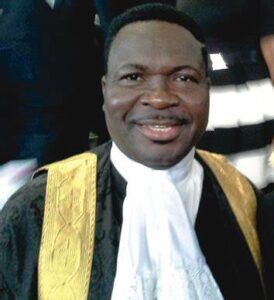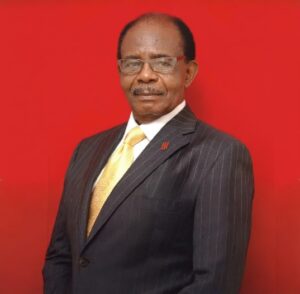Bravo to Ministers Tunji-Ojo and Keyamo

Tonnie Iredia

SPONSORED
By Tonnie Iredia
The seeming opposition by many Nigerians to president Tinubu’s fuel subsidy removal has no doubt been generally misunderstood. Of course, it is an open secret that the subsidy regime had been more of a cause than a blessing to the people.
But no one is convinced that fuel subsidy removal can be done without dialogue and more importantly without a clearly well-thought-out statement on how to manage its devastating consequences.
Even the International Monetary Fund which is a pro-subsidy removal body has admitted that in addition to the decision to remove fuel subsidy, Nigeria must make efforts to protect poor citizens from the high cost of living crisis.
Last week at the World Bank/IMF Annual Meetings in Marrakesh, Morocco, the IMF told Nigeria to complement the fuel subsidy removal with a set of policies that could help lower inflation and protect the most vulnerable citizens.

In many other countries, the percentage of the society that is described as vulnerable can be quite insignificant but not so in Nigeria where everybody except the political class has been impoverished.
What this suggests is that Nigeria needs to put a halt to practices that exacerbate poverty across board in the land.

If it is hard to stop the private sector from profiteering, it is certainly irrational for government itself to frequently act as an inflation catalyst. Quite often, we hear sermons to ordinary entrepreneurs to come down on their prices which are much higher than what informed the increases.
If so, how do we explain unjustifiable increases in public services that are initiated by government and its agencies?
Put differently, why do government agencies introduce at will so many procedures and processes whose implementation automatically increase the cost of a service to the citizenry beyond its normal cost if such procedures were abridged?

SPONSORED
There are so many examples of government’s insensitivity which encourage everyone to increase the cost of their goods and services.
Let’s begin with the posture of the Nigeria Immigration Service (NIS). Several years ago, the service suddenly decided to equate the cost of renewing an international passport with the cost of getting an initial/fresh passport.
Added to this, is a set of what to do as well as when and where to do it which immigration personnel exploit to create long queues so as to extort money from applicants.
Commendably, when a digitally proactive Olubunmi Tunji-Ojo assumed office as Nigeria’s new interior minister, the NIS got a marching order to clear the backlog of over two hundred thousand passports that had been outstanding for production.
Tunji-Ojo also vowed that with his new reform measure in place, never again will there be any backlog of passports in Nigeria.
The minister did not stop there. Since his appointment, he has left no one in doubt that the old order in which service delivery is handled like rocket science is over.
All agencies in the interior sector are now forced to be on their toes because unlike his predecessors Tunji-Ojo does not believe that an interior minister should operate as one idler whose main job is to announce public holidays.
The man has already alerted all those concerned that service delivery in the interior sector during his tenure would be premised on management by intellect.
To start with, he is insisting that no one would get promoted simply on the basis of longevity of service. Instead, several other factors would be added to the passing of promotional examinations.
One of such measures is the requirement for all officers in the sector to upgrade themselves academically.
For this reason, the minister has set up a ‘Paramilitary Brain Trust’ framework for continuous professional development programmes. So, it is time to warmly commend Minister Tunji Ojo while expecting more from him.
In other climes, where governments work for the welfare and security of citizens, the activities for which this piece picks up Tunji-Ojo and Festus Keyamo are taken for granted but not so in Nigeria where from the colonial era, citizens are treated as objects rather than the subject of democracy.
In the aviation sector for example, government was the first to display a love for inflation in its reaction to the fuel subsidy removal.
As soon as the popular ‘subsidy is gone’ statement was made, an increased payment schedule was introduced at our airport toll gates.
The only consequence of that unnecessary increase was the awareness it created for everyone to increase prices. It would not have been too bad if the increases improved service delivery, but till today many facilities be it screening machines, loud speakers, lifts on stairs etc. malfunction in all our airports.
It is against this background that a loud applause welcomed the admonition of minister Festus Keyamo for all actors in the sector to be mindful of the untold hardships which their incompetent services impose on Nigerians.
Our airlines operate as if they have no official regulator. (Do they really have?) Before the era of insecurity that scared away many people from the highways, even the rich preferred road transportation because the waiting hours at our airports were usually longer than the long hours of road journeys.
No one has since then stopped the airlines from lateness and inhumane delays.
Now that Keyamo has harshly criticised them, is there any hope that some relief would come the way of passengers, who are unable to travel seamlessly from one place to the other as is done in other parts of the world?
Apart from visible collusion by the regulator, many of the airlines have become attuned to the old culture of African time.
We can quickly recall the interesting story of one airhostess who apologised for late departure on the only day her airline was on time.
In other words, with apology as a routine part of work ethics in our aviation industry, not much change can happen to lateness except Keyamo compels the regulator to act.
Perhaps the main reason Keyamo is commended today is his courage in cancelling the Nigeria/Ethiopia 419 airline arrangement.
It was a great leadership initiative to save Nigeria from further international embarrassment.
As the Airline Operators of Nigeria AON put it the Nigeria Air project under the immediate past administration was not only an idea that was poorly thought-out, it in addition ‘lacked any modicum of transparency.’
In fact, the House of Representatives Committee on Aviation which investigated the process and purported launch of Nigeria Air described it as a fraud.
Throwing the project out promptly suggests that Keyamo is set to give Nigeria, the type of Aviation system she desires.
There are many little things that can make the difference if well tackled.
For how long for instance should Nigeria parade airports that cannot provide night services?
Why can’t we have intercity flights in Nigeria instead of all flights heading first to Lagos or Abuja?
When can we have flights from Kano to Kaduna or Benin to Asaba or Ibadan to Akure?
To raise these old posers in 2023, underscores Nigeria’s stunted growth.
So much is expected from all our ministers. First, they need to justify their large numerical strength.
Second, they must strive to stop all insider abuses that contribute largely to our dilemma.
Each time we hear of demolition of illegal structures, the first thought is usually that of crass indiscipline among our people who experiment with every rule or regulation.
But that is not always the case; there are many cases where the so called illegal structures were approved in exchange for gifts.
Here, we call in particular on Minister Nyesom Wike who is anxious to build a better FCT to please publicise sanctions meted to corrupt officials who initially encouraged the distortion to Abuja’s master plan.
In education, we ought to easily look forward to the possibility of restive academic sessions in our tertiary institutions now that we have Tahir Mamman – astute educational administrator, former Director General of the Nigerian Law School and also former University Vice Chancellor as Minister of Education.
Beyond education, Nigeria’s development should no longer be a narrative; what we need now is not frequent announcements of plans, efforts, strategies and challenges.
Rather, let’s hear more of achievements in critical areas such as road construction projects which in the past were announced but never executed.








